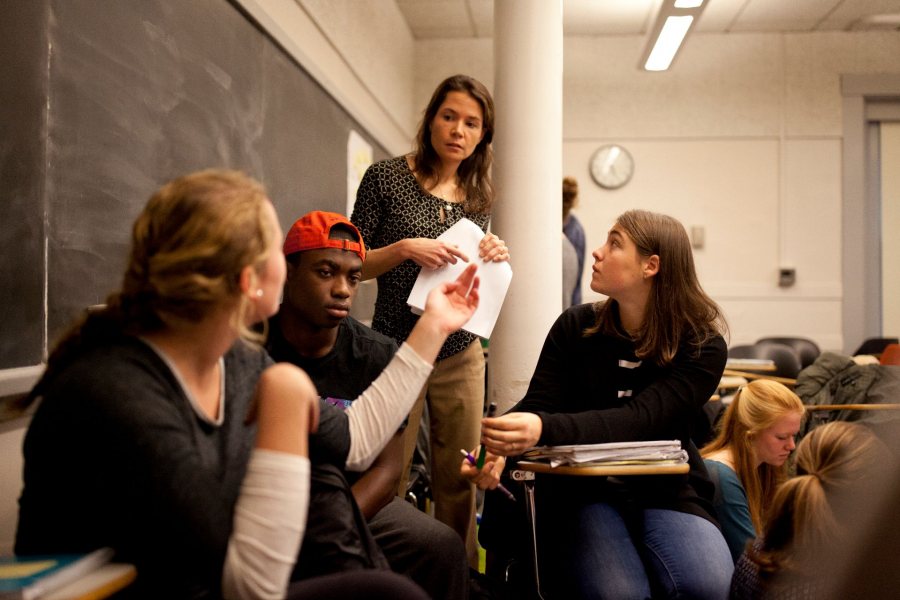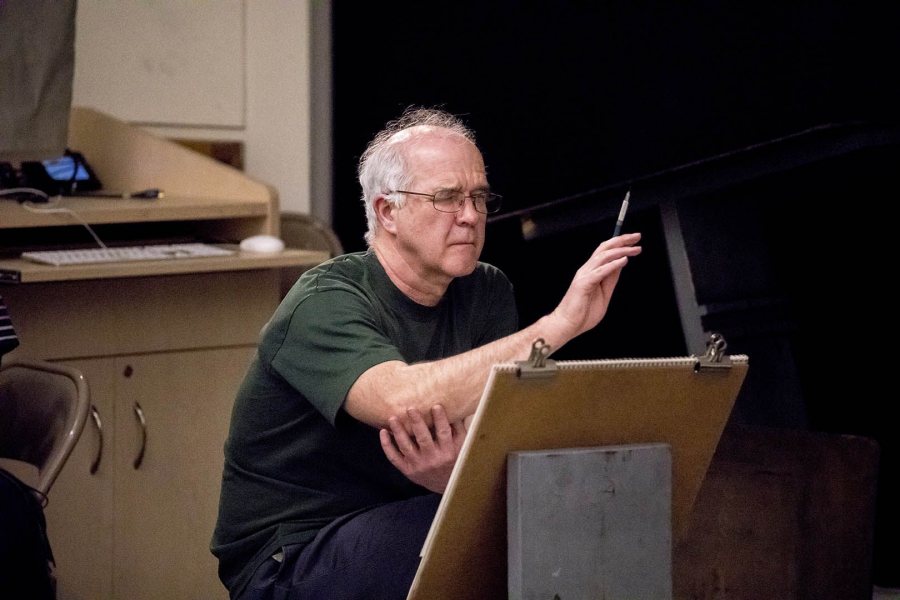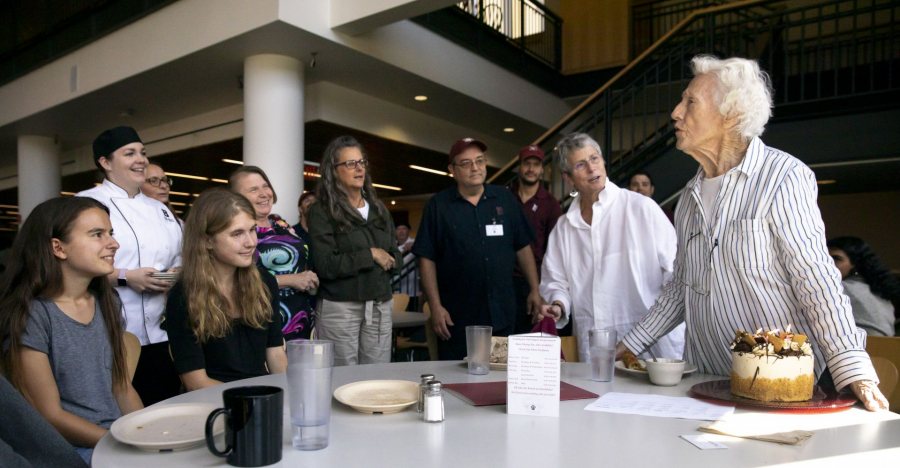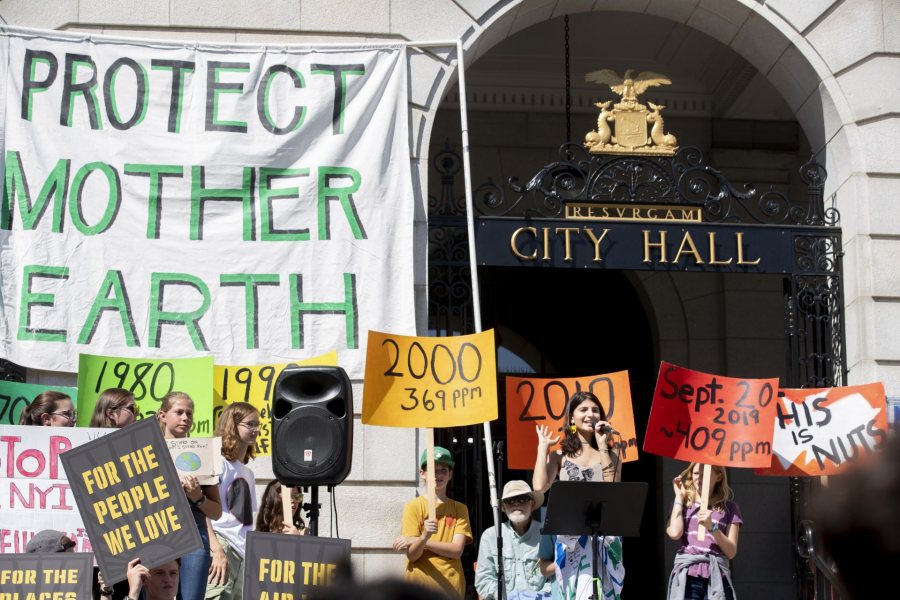Mara Tieken
School closures can hit rural communities hard — The Conversation
Writing for The Conversation, Associate Professor of Education Mara Tieken argued that the closure of rural schools can devastate students, families, and communities.

Schools often close for reasons of poor academic performance, budget constraints, or declining enrollments. When they do, students’ relationships with peers and teachers are disrupted, absences go up, and involvement in extracurricular activities goes down, often because students have to commute longer distances.
“In many rural communities, schools are the largest employer,” Tieken wrote. “They provide political power, and they tie people together. Once the schools are gone, the community loses all of these benefits.”
Read the story:
- “School closures can hit rural communities hard,” The Conversation, Jan. 9, 2020
Bates Museum of Art
Snow School: Bates College makes life drawing practical, if not easy — Sun Journal
Amy Paradysz of the Lewiston Sun Journal covered a Wednesday-night fixture sponsored by the Bates Museum of Art: live figure drawing.

Artists come to campus, often traveling long distances, to draw models — some are Bates students, others community members — holding poses of various types and lengths.
The exercise is valuable practice for a tricky but rewarding aspect of art. “It’s good for me to be reminded how challenging it is to observe and capture what I’m seeing,” said Mike Hickey of Yarmouth. “It’s good to be humbled.”
Read the story:
- “Snow School: Bates College makes life drawing practical — if not easy,” Sun Journal, Dec. 29, 2019
Carissa Aoki
Racist housing practices from the 1930s linked to hotter neighborhoods today — NPR
Neighborhoods that were subject to historical redlining — a racist housing practice that segregated cities and concentrated poor, minority, and immigrant residents — are hotter than non-redlined neighborhoods, Meg Anderson of NPR reported.
Part of the reason for heat disparities of five degrees or more involves tree cover, according to a study coauthored by Bates Lecturer in Environmental Studies Carissa Aoki.
“In 37 cities around the country, formerly redlined neighborhoods have about half as many trees on average today as the highest-rated predominantly white neighborhoods on those maps,” Anderson wrote.
Read the story:
- “Racist housing practices from the 1930s linked to hotter neighborhoods today,” NPR, Jan. 14, 2020
Dorothy Foster Kern ’42
For these ‘three Dots,’ 100 years of friendship, fellowship, and fun — NPR
National and local news outlets have noticed a curious and happy occurrence: Three women named Dorothy, including Dorothy Foster Kern ’42 — all friends and all living in Auburn — celebrated their 100th birthdays in 2019.
Kern, Dorothy Buchanan, and Dorothy Murray all became centenarians in 2019, with Kern celebrating her 100th in September with a special luncheon at Bates.
A graduate of Auburn’s Edward Little High School, Kern was inspired to attend Bates in part by a relative who taught at the college.

“I’m just a kid,” Kern told Maine Public’s Susan Sharon, in a piece about the “three Dots” that NPR later picked up. “I don’t feel any different than I did at 16.”
Down East magazine also featured Kern in collaboration with Maine Public.
“My life is quiet and happy, and I’m doing what I like to do, but I miss people — everyone who is not still here,” said Kern, who has outlived two of her five children. “In that sense, it’s lonely. I miss the children that were, but I’m happy to have the ones I’ve got. I’m lucky.”
Read the stories:
- “For these ‘three Dots,’ 100 years of friendship, fellowship, and fun,” NPR, Dec. 22, 2019
- “Thoughts on the past — and the future — from nine 100-year-old Mainers,” Down East, December 2019
Muskan Verma ’21
South-Asian Americans protest India’s citizenship bill — NBC News
Reporting on South-Asian Americans’ protests against a bill in India that excludes Muslim immigrants from a path to citizenship, NBC News’ Mythili Sampathkumar talked to Muskan Verma ’21 of Shimla, India, a coordinator of the South Asian Students Against Fascism movement.

Many South-Asian Americans, Sampathkumar wrote, see parallels between what is happening in India and religious and racial discrimination in the United States. Some are organizing protests in major American cities on Jan. 26, India’s Republic Day holiday.
Verma told Sampathkumar that her group wants to send “a very strong message not just to the [Indian] government, but to the people protesting that they are not alone and that protests are not happening in a void.”
Read the story:
- “South Asian Americans protest India’s citizenship bill,” NBC News, Jan. 19, 2020


